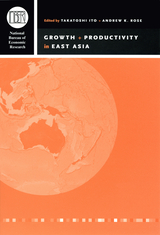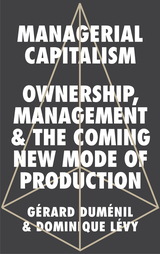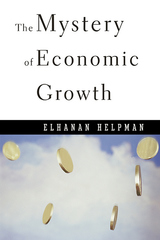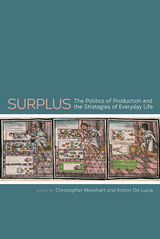
Unlike the papers of some other great economists, those of Kenneth Arrow are being read and studied today with even greater care and attention than when they first appeared in the journals. The publication of his collected papers will therefore be welcomed by economists and other social scientists and in particular by graduate students, who can draw from them the deep knowledge and the discernment in selection of scientific problems that only a master can offer. The author has added headnotes to certain well-known papers, describing how he came to write them.
The study of production is central to economic theory, and capital and its accumulation are two of the most interesting aspects of the modern production process. Capital may take the form of inventories of inputs, inventories of outputs, or machines and other fixed goods. The essential and unique aspect of all types of capital is that it must be accumulated as the result of prior stages of the production process. This gives the dynamic theory of production a recursive structure that can be exploited by economic analysis. The optimization of production under recursive conditions lends itself to general mathematical methods of dynamic programming and optimal control theory. This is the main theme of the essays included in this fifth volume of Kenneth Arrow's Collected Papers.

Takatoshi Ito and Andrew K. Rose have organized a group of collaborators from several Asian countries, the United States, and other parts of the globe who ably balance both macroeconomic and microeconomic study with theoretical and empirical approaches. Growth and Productivity in East Asia gives special attention to the causes for the unusual success of Australia, one of the few nations to maintain unprecedented economic growth despite the 1997 Asian financial crisis and the 2001 global downturn. A new database comprising eighty-four Japanese sectors reveals new findings for the last thirty years of sectoral productivity and growth in Japan. Studies focusing on Indonesia, Taiwan, and Korea also consider productivity and its relationship to research and development, foreign ownership, and policy reform in such industries as manufacturing, automobile production, and information technology.

In Defense of Monopoly offers an unconventional but empirically grounded argument in favor of market monopolies. Authors McKenzie and Lee claim that conventional, static models exaggerate the harm done by real-world monopolies, and they show why some degree of monopoly presence is necessary to maximize the improvement of human welfare over time.
Inspired by Joseph Schumpeter's suggestion that market imperfections can drive an economy's long-term progress, In Defense of Monopoly defies conventional assumptions to show readers why an economic system's failure to efficiently allocate its resources is actually a necessary precondition for maximizing the system's long-term performance: the perfectly fluid, competitive economy idealized by most economists is decidedly inferior to one characterized by market entry and exit restrictions or costs.
An economy is not a board game in which players compete for a limited number of properties, nor is it much like the kind of blackboard games that economists use to develop their monopoly models. As McKenzie and Lee demonstrate, the creation of goods and services in the real world requires not only competition but the prospect of gains beyond a normal competitive rate of return.

Drawing examples from the United States and Europe, the authors offer a historically rooted interpretation of major current economic and political trends. Without eschewing Marx’s theory of history and political economy, they update it to take account of the changes underway in class patterns and relationships to production. The result is a robust new Marxism for the present and the future.

Far more than an intellectual puzzle for pundits, economists, and policymakers, economic growth--its makings and workings--is a subject that affects the well-being of billions of people around the globe. In The Mystery of Economic Growth, Elhanan Helpman discusses the vast research that has revolutionized understanding of this subject in recent years, and summarizes and explains its critical messages in clear, concise, and accessible terms.
The tale of growth economics, as Helpman tells it, is organized around a number of themes: the importance of the accumulation of physical and human capital; the effect of technological factors on the rate of this accumulation; the process of knowledge creation and its influence on productivity; the interdependence of the growth rates of different countries; and, finally, the role of economic and political institutions in encouraging accumulation, innovation, and change.
One of the leading researchers of economic growth, Helpman succinctly reviews, critiques, and integrates current research--on capital accumulation, education, productivity, trade, inequality, geography, and institutions--and clarifies its relevance for global economic inequities. In particular, he points to institutions--including property rights protection, legal systems, customs, and political systems--as the key to the mystery of economic growth. Solving this mystery could lead to policies capable of setting the poorest countries on the path toward sustained growth of per capita income and all that that implies--and Helpman's work is a welcome and necessary step in this direction.

The concept of surplus captures the politics of production and also conveys the active material means by which people develop the strategies to navigate everyday life. Surplus: The Politics of Production and the Strategies of Everyday Life examines how surpluses affected ancient economies, governments, and households in civilizations across Mesoamerica, the Southwest United States, the Andes, Northern Europe, West Africa, Mesopotamia, and eastern Asia.
A hallmark of archaeological research on sociopolitical complexity, surplus is central to theories of political inequality and institutional finance. This book investigates surplus as a macro-scalar process on which states or other complex political formations depend and considers how past people—differentially positioned based on age, class, gender, ethnicity, role, and goal—produced, modified, and mobilized their social and physical worlds.
Placing the concept of surplus at the forefront of archaeological discussions on production, consumption, power, strategy, and change, this volume reaches beyond conventional ways of thinking about top-down or bottom-up models and offers a comparative framework to examine surplus, generating new questions and methodologies to elucidate the social and political economies of the past.
Contributors include Douglas J. Bolender, James A. Brown, Cathy L. Costin, Kristin De Lucia, Timothy Earle, John E. Kelly, Heather M. L. Miller, Christopher R. Moore, Christopher T. Morehart, Neil L. Norman, Ann B. Stahl, Victor D. Thompson, T. L. Thurston, and E. Christian Wells.

This intellectually bold but accessible book seeks to go beyond limitations of the reigning neoclassical and institutional paradigms in explaining the organization of economic activity. It does this by construing “non-economic” factors such as institutions, cultures, and social practices as conventions, which coordinate economic actors by defining specific “frameworks of economic action.” In these conventional frameworks, the standard distinction between economic and non-economic no longer exists. The authors explore in detail four basic frameworks—or “possible worlds of production”—which underpin the mobilization of economic resources, the organization of production systems and factor markets, patterns of economic decision making, and forms of profitability. The case studies examine how these possible worlds act to support innovative production complexes in a variety of sectors in several countries.
Michael Storper and Robert Salais show that economic actors coordinate actions with one another and interpret what others are doing in ways that are constructed by convention. The principal challenge to economic policy today, they argue, is to reconcile internally coherent conventions with the external tests of product and financial markets, which tend increasingly to escape jurisdictional borders. There is no single model of growth and efficiency that brings these two sides together around the world today, even in narrowly defined product markets. If policies are to deal effectively with an increasingly unified global system of flows of commodities, money, and people, they must be aware of the diverse, economically viable action frameworks found in different industries, regions, and nations.
READERS
Browse our collection.
PUBLISHERS
See BiblioVault's publisher services.
STUDENT SERVICES
Files for college accessibility offices.
UChicago Accessibility Resources
home | accessibility | search | about | contact us
BiblioVault ® 2001 - 2024
The University of Chicago Press









